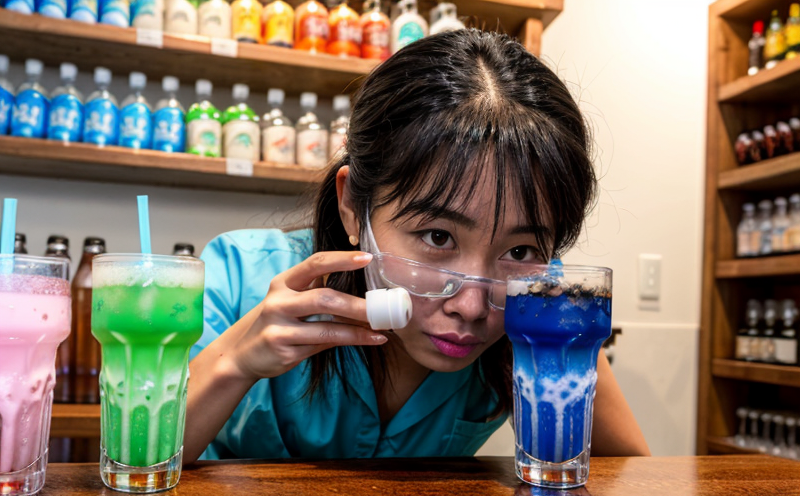OECD Validation of Beverage Microbiology Testing Methods
The OECD (Organization for Economic Co-operation and Development) guidelines provide a framework for the validation of microbiological methods used in various industries, including the beverage industry. Beverage microbiology testing is critical to ensuring product safety and quality. This service focuses on validating new or modified microbiological methods according to OECD principles specifically tailored for beverages.
Validating these methods ensures that they are robust enough to detect relevant microorganisms accurately. The process involves rigorous testing under controlled conditions, which can be complex but essential for maintaining regulatory compliance and product integrity. Beverage manufacturers must adhere to strict guidelines to avoid contamination risks and ensure the safety of their products.
The OECD guidelines emphasize the importance of standardizing microbiological methods across different laboratories to achieve consistent results. This is particularly crucial in the beverage industry, where even small variations in test procedures can lead to discrepancies in quality control data. By validating methods according to these guidelines, companies can ensure that their testing protocols are reliable and reproducible.
The OECD validation process typically involves several stages, including method development, optimization, qualification, and transfer. Each stage is designed to evaluate different aspects of the test procedure, from initial design to final implementation. During this process, various parameters such as incubation times, growth media, and detection limits are critically assessed.
For beverages, the choice of appropriate sampling techniques is paramount. Factors like storage conditions before testing and the type of container used can significantly influence the outcome. Proper handling from sample collection to analysis helps maintain accuracy throughout the validation process. This includes using sterile techniques and ensuring that all equipment is properly calibrated prior to use.
Once validated, these methods become part of standard operating procedures (SOPs), providing clear instructions for laboratory personnel on how to conduct microbiological analyses consistently across different batches or production runs. Consistency in methodology ensures that any deviations from expected results are due to genuine variations within the product rather than inconsistencies in testing.
The success of this service lies not only in meeting regulatory requirements but also in enhancing overall quality assurance practices within organizations. By adhering strictly to OECD guidelines, businesses demonstrate their commitment to delivering safe and high-quality products consistently.
Adopting such validated methods allows companies to stay ahead of industry trends by ensuring that their testing techniques remain up-to-date with current scientific knowledge. This proactive approach not only protects consumers but also strengthens brand reputation through transparency about testing practices.
Why Choose This Test
The OECD validation process offers several advantages that make it an attractive choice for beverage manufacturers looking to enhance their microbiological testing capabilities:
- Regulatory Compliance: Ensures adherence to global standards recognized by regulatory authorities.
- Enhanced Reliability: Provides more dependable and consistent results across multiple locations and tests.
- Innovation: Encourages continuous improvement of testing methods based on the latest scientific findings.
- Risk Management: Helps identify potential risks early in the product lifecycle, allowing for timely mitigation strategies.
By investing in OECD validated methods, businesses not only meet legal requirements but also position themselves as leaders in food safety and quality assurance. This can translate into long-term benefits such as reduced recall costs, enhanced market credibility, and improved customer satisfaction.
Customer Impact and Satisfaction
The implementation of OECD validated beverage microbiology testing methods has significant impacts on both internal operations and external relationships with customers:
- Internal Efficiency: Standardized procedures reduce errors, improve turnaround times, and streamline workflows.
- External Reputation: Demonstrating commitment to high standards can increase customer trust and loyalty.
- Market Positioning: Leading-edge technology positions brands favorably in competitive markets where safety and quality are key considerations.
Customers benefit from safer, higher-quality products that meet stringent international standards. This translates into better health outcomes for consumers and a more robust business environment overall.
Frequently Asked Questions
- Ensures regulatory compliance with international standards.
- Improves reproducibility among laboratories.
- Enhances product safety and quality assurance practices.
- Promotes transparency about testing procedures which strengthens brand reputation.





